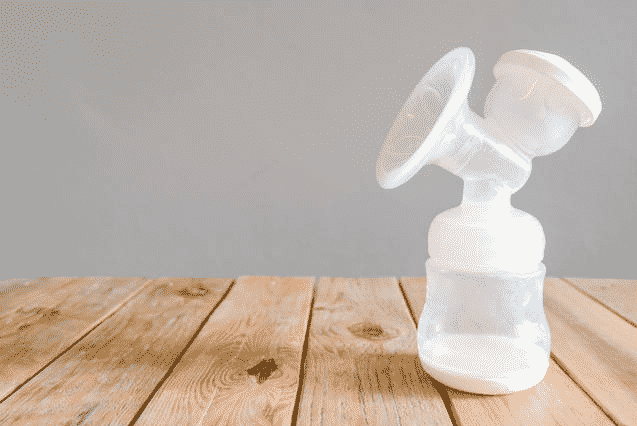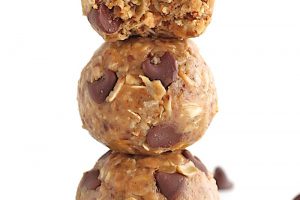You’re experiencing a supply drop. Could there be things that you are unintentionally doing to cause your low milk supply? Possibly.
In this article, you’ll find the usual causes of low milk supply. However, here’s something important to keep in mind on your breastfeeding journey: The production of breastmilk operates strictly on a supply and demand basis. If breastmilk is sucked out of your breasts frequently, your body will automatically replenish it – just as frequently.
On the flip side – if milk is not removed frequently and efficiently, your body will see this as it no longer needing to produce as much. In other words – if you want to produce more milk, make sure every drop is either sucked out by your baby or a breast pump![]() – several times per day.
– several times per day.
There are exceptions, (discussed below), but for the most part, our bodies are extremely efficient when it comes to feeding our babies with breastmilk.

Contents
Possible Causes Of Your Low Milk Supply
You can experience a low breastmilk supply if any of the following are present to limit the amount of milk you make:
-
Foods That Decrease Milk Supply
 There are several lactogenic foods that actually increase your milk supply. Unfortunately, there are also foods to avoid while breastfeeding.
There are several lactogenic foods that actually increase your milk supply. Unfortunately, there are also foods to avoid while breastfeeding.
If you are consuming these foods and drinks in small amounts, you don’t have too much to worry about. However, do avoid them in large doses.
- Parsley;
- Spearmint and peppermint;
- Sage and oregano. (Sage tea can be used by moms suffering from engorgement);
- Decongestants like pseudoephedrine;
-
The Use Of Bottles And Artificial Nipples

![]() Sucking from a baby bottle requires a different kind of sucking than sucking from mom’s nipple. The flow from a baby bottle is constant and easier. Sucking from mom’s nipple is a little bit harder.
Sucking from a baby bottle requires a different kind of sucking than sucking from mom’s nipple. The flow from a baby bottle is constant and easier. Sucking from mom’s nipple is a little bit harder.
At the early stage, you do not want to confuse your baby. Even as early as 2 days old, babies can distinguish between the feel of an artificial nipple![]() and a real nipple.
and a real nipple.
Offering your baby a bottle can either cause your baby to have problems sucking properly at your breast, or can result in your baby preferring the constant, faster flow of the bottle.
Avoid the hassles and do not introduce baby bottles until breastfeeding has been established.
-
Milk Is Not Effectively Sucked From Your Breast
A milk supply drop will occur if all your milk is not sucked from your breasts. There are a few reasons why this can happen:
Your Baby Falls Asleep During Feedings
According to Dr. Jack Newman from the International Breastfeeding Center, most moms “seem to have a lot of milk which flows very quickly at the beginning of a feeding.” However, the baby falls asleep when the flow slows down later in the feeding, and they end up not emptying the breast.
Babies respond to milk flow and if the flow is slow, they tend to sleep at the breast. This is particularly the case if they are under a few weeks of age.
If your baby is falling asleep, you have two options: Switch sides or do breast compressions.
If you are switching sides, you may need to switch 3 or more times to wake your baby.
Breast compressions are also very effective. Notice how this sleepy baby quickly wakes up and starts drinking when his mom starts breast compressions.
Baby Is Not Latching On Properly
Try to get the best latch possible. The video below is very helpful but if you are still having problems, you may need help from a lactation consultant.
You Are Using Nipple Shields
Initially, breastfeeding IS painful because your nipples are not used to being sucked on. Once they are used to it, breastfeeding will be painless. To try to minimize the pain, some moms may use nipples shields![]() . While nipple shields can be helpful, they can also hinder the extraction of milk from your breasts
. While nipple shields can be helpful, they can also hinder the extraction of milk from your breasts
Health Or Anatomical Problems Are Preventing Effective Sucking
If your baby is premature or has any health or anatomical problems that interfere with his/her ability to effectively suck out all the milk, you will need to express milk or use a breast pump![]() to suck out as much breastmilk as possible. This is to maintain your milk supply while the breastfeeding problems are being addressed.
to suck out as much breastmilk as possible. This is to maintain your milk supply while the breastfeeding problems are being addressed.
A baby can also be tongue-tied. Tongue-tied babies may not be able to latch properly.
Tongue-tie happens when the frenulum (the thin tissue that connects the bottom of the tongue to the floor of the mouth) is restricting the baby’s ability to move the tongue forward or up.
Only about 6% of babies may be tongue-tied, according to New York lactation consultant Catherine Watson Genna. The condition is inherited.
-
Offering Only One Breast Per Feeding

Offering one breast per feeding is okay if your milk supply is well-established and your baby is gaining weight well. However, if you are trying to increase your milk supply, let your baby finish the first side, then offer the second side.
Use breast compressions to empty out your breasts.
If your baby is not getting all the milk out, you will need to express milk or pump ![]() after and/or between nursings to maintain your milk supply.
after and/or between nursings to maintain your milk supply.
-
Not Breastfeeding On Demand
To maintain or increase your milk supply, you do need to breastfeed your baby frequently and on-demand. Also, do not limit the length of time your baby is drinking at your breast.![]()
-
Supplementing Breastfeeding With Infant Formula
 When you supplement with formula, your body assumes it needs to produce less milk.
When you supplement with formula, your body assumes it needs to produce less milk.
“In the early weeks, the breasts’ capacity for milk production is calibrated in response to the amount of milk that is removed,” according to lactation consultant Diana West. “If less milk is removed, the breasts assume that less milk is needed, so the capacity is set at a lower point.”
When your baby is offered formula, your baby will naturally drink less at the breast. Your breasts respond by making less milk.
If supplementation is necessary, pump to maintain your milk supply.
-
Introducing Solids Before Baby is 4-6 Months Old
This is the same as if you are supplementing with formula.
If your baby is having solids, that means he/she is drinking less milk, which means less milk is sucked from your breasts. That, in turn, means that less milk will be produced.
-
Taking Certain Medications/ Herbs
 If you find your milk supply has dropped, consider your diet and any medications you are on.
If you find your milk supply has dropped, consider your diet and any medications you are on.
The following medications can affect your milk supply:
- Pseudoephredine (the active ingredient in Sudafed and similar cold medications),
- Methergine,
- Bromocriptine
- Large amounts of sage, parsley or peppermint
Ask your doctor about alternative treatments.
Increased breastfeeding and pumping![]() will help you build up your milk production again.
will help you build up your milk production again.
-
Taking Birth Control
 Many moms see no change in their milk supply if they take birth control pills. For others, however, they see a significant drop in their milk supply if they take any kind of hormonal birth control like the pill, patch or injections.
Many moms see no change in their milk supply if they take birth control pills. For others, however, they see a significant drop in their milk supply if they take any kind of hormonal birth control like the pill, patch or injections.
This is likely to happen if you start taking these contraceptives before your baby is four months old, but it can happen later as well.
The first step to increasing your milk supply again is to talk to your doctor. Be prepared to stop taking hormonal contraceptives.
To get your supply back up, you may need prescription medication, herbal supplements and/or pumping.
-
Breast Augmentation Surgery and/or Piercings
Nipple piercings could damage milk ducts in the nipple.
Breast augmentation can also affect breastfeeding. It depends on the procedure that was done, how much time has passed between the procedure and the birth of your baby, and whether there were any complications that might have caused scarring or damage to your breasts.
Some moms, particularly those with breast enhancements, may be able to exclusively breastfeed without any difficulty. Moms who have had breast reductions, however, may need extra help and may have to supplement.
-
Insufficient Glandular Tissue
Some women’s breasts may not have enough “milk-making” ducts to meet their baby’s needs.
Milk ducts grow during each pregnancy and breastfeeding stimulates the growth of more ducts and tissue. If you are having this problem with your first baby, this may be less of a problem with a second or third baby.
There are steps you can take to maximize your milk production. This will include pumping and taking a prescription medication.
FROM MOM TO MOM– Even if your milk supply is low, it’s still worth the effort to continuing breastfeeding. Even a small amount of your milk will help support your baby’s immune system, brain development, and nutritional needs.
-
Hormonal or Endocrine Problems
The following medical problems may lead to a low milk supply:
- Polycystic ovary syndrome (PCOS)
- A low or high thyroid
- Diabetes
- Hypertension (high blood pressure)
- Hormonal problems
In some cases, the treatment of your health problem will help to boost your milk production.
-
Low Milk Supply Due To Lifestyle Choices
 Certain lifestyle choices, such as the use of alcohol, drugs, and tobacco can lower milk supply. It is also harmful to your baby.
Certain lifestyle choices, such as the use of alcohol, drugs, and tobacco can lower milk supply. It is also harmful to your baby.
Drinking alcohol while breastfeeding is not prohibited. According to the American Academy of Pediatrics (AAP), it’s generally safe to breastfeed after having one alcoholic drink (5 ounces of wine, one shot of alcohol or 12 ounces of beer). If you feel completely sober, it’s okay to nurse your baby because alcohol does not stay in your milk for longer than it does in your bloodstream.
However, if alcohol is negatively affecting your milk supply, it should be avoided.

-
Stress, Anxiety And Poor Diet
Medical professionals advise that stress and anxiety itself can lead to a low milk supply. Instead of worrying, rest assured that you most likely are producing enough milk. If you are not, there are plenty of ways to help increase your production.
Try to relax and get more rest. It is a cliche, but do try to sleep when your baby sleeps. This might be easier said then done if you have a toddler in the house. Even so, do make every effort to take care of yourself.
Note From The Author
While there are several reasons for low milk supply, there are even more ways to increase your milk supply. Do not feel discouraged – it is possible to boost your milk supply overnight, or at least within 72 hours. You can increase your milk supply by eating lactogenic foods or other equally effective methods.












